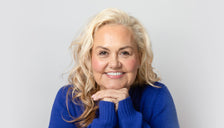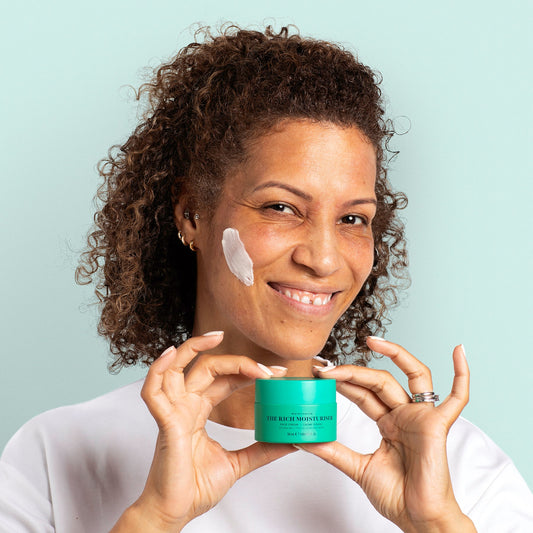I would never normally mix business and blogging – but in honour of the Official roll-out of ‘all for eve‘ this week and in place of the usual ‘beauty’ posts – I wanted to share some information made available to us through both The Eve Appeal and also by Dr Tim Mould – Oncologist Gynaecologist at UCLH here in London.
I feel very privileged to be a part of something so unique from its inception and feel especially passionate about this cause as I lost my grandmother to gynaecological cancer when she was far too young.
‘all for eve’ is a stand alone beauty and lifestyle brand whose sole purpose is to generate much needed funds and awareness for gynaecological cancers. Products go on sale this weekend across most big retail channels.
All net profits generated by the sale of these products go to The Eve Appeal – which in turn funds research into gynaecological cancers at UCLH in London.
Please read, feel free to copy, pass on and do what you can to create more awareness of this horrifying disease.
Firstly a few shocking statistics:
• 50 women a day are diagnosed with a gynaecological cancer in the UK
• 20 women a day die of a gynaecological cancer in the UK
• 1,000,000 a year are diagnosed with a gynaecological cancer worldwide
• Of these over 720,000 will die
• 9/10 women do not know how many gynaecological cancers there are
• 3/4 of women cannot name any symptoms of ovarian cancer
• Ovarian cancer takes the lives of 72% of sufferers every year – a figure that has barely changed since 1972
• 85% of sufferers of ovarian cancer present at Stage 3 (out of 4) – at which point the survival rate is 15%
• 85% of sufferers of breast cancer survive (based on a 5 year survival rate)
The Facts:
There are 5 types of gynaecological cancer:
Ovarian, endometrial/uterine (womb), vulval, cervical, vaginal
• Ovarian cancer is the most common form – although cancer of the womb has the highest rate of increases which are believed to be related to weight increase post-menopause.
• Average age for ovarian cancer is 59 – average age of cervical cancer is 35
• 90% of cases are sporadic
• 10% are inherited genes
Risks
Your risk of sporadic cancer is greatly reduced if you:
• Have 3 or more children
• Have been taking the combined pill for more than 10 years as the pill suppresses ovulation – thereby ostensibly giving the ovaries ‘a rest’
• Have had tubal sterilisation
• A hysterectomy
• The marina coil will ‘probably’ reduce your risk of womb cancer
Increased risks
• If you carry the BRCA gene you have an increased risk of both breast and ovarian cancers – as high as 80% for breast and 40% for ovarian
• IVF over-stimulates the ovaries and can cause tiny little cysts which are then more likely to turn cancerous
• Familial risk – only increases by 5% if you have a primary (mother, sister) relative with the disease
Symptoms
The other problem is that the symptoms of ovarian cancer can be diagnosed for numerous other illnesses – especially IBS.
• Abdominal distension
• Bloating
• Lower back pain
• Bowel obstruction
• Urinary symptoms
• Breathlessness
An undetected cancer on the ovary can and will spread to every other internal organ due to their proximity in the body cavity
Diagnosis
The main problem with ovarian cancer is that most women present at Stage 3 or 4.
85% of all sufferers are at this stage when diagnosed.
If caught at Stage 1 the survival rate is 90% – this lowers to 15% at Stages 3 and 4.
Ultrasound is the best way for diagnosis. It will show up anything that should not be there – and in the doctor’s words – ‘any cyst showing up after menopause should NOT be there’.
There is also a CA125 blood test which registers when protein levels go up in the blood – a sign of ovarian cancer – the problem with this is that other viruses can cause the levels to rise and proteins will not rise with ALL cancers.
If you are in the very high risk group you should have the blood test every 4 months.
If you are post-menopausal you should have a scan and blood test every year.
Ideally, everyone else should alternate blood test/scan every other year.
Treatment
Stage 1 – curable with surgery
Stage 2 – curable with surgery and (sometimes) chemotherapy
Stage 3 and 4 – 15% survival rate with surgery and chemotherapy
Stages 3 and 4, once cured, can be treated as a ‘chronic illness’ similar to diabetes because it can come back.
Thanks to the support of The Eve Appeal, UCLH is currently undertaking the largest medical trial on ovarian cancer in history. It finishes in 2011 and the results will be announced in 2015.
It is based on 3 separate groups of women and the aim is to conclusively prove that testing/screening lowers incidences of ovarian cancer and thus force the government to introduce scanning and testing across the country for women in all risk groups.
Please take care of your Lady Garden Ladies.





























